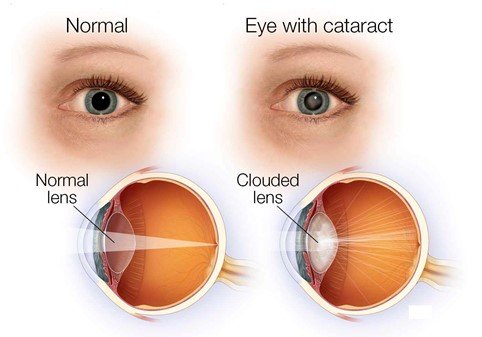Everything You Need to Know About Cataracts
What are cataracts?
Cataracts occur when changes in the lens of the eye cause it to become cloudy. This, in turn, prevents light from reaching the retina as it should and results in cloudy vision. A cataract can cloud part of or the whole lens, and they can develop in one or both eyes.
Who can get cataracts?
Most cataracts are a result of ageing, although some babies can be born with cataracts and they can also develop in young children. These childhood cataracts are thankfully rare, affecting approximately three or four children in every 1,000. Age-related cataracts, on the other hand, are far more common. Every year the NHS carries out over 300,000 cataract operations.
How do you know if you have a cataract?
As most cataracts develop slowly over time, you might miss the early symptoms, especially as we tend to adjust and adapt to subtle changes in our vision. As time goes on the symptoms will become more obvious and can include:
- blurred vision
- sensitivity to light
- poor vision in bright light
- changes in colour perception
How are cataracts diagnosed?
Hopefully, this won’t come as a surprise, but the best way to detect the early symptoms of cataracts is to have a regular eye examination. We recommend everyone has one at least every two years. If you’re 60 or over, we recommend an annual examination.
What can be done?
Many people with cataracts can carry on their normal routines without the need for any treatment. If action is necessary, however, the only effective treatment is a straightforward operation to remove the lens and replace it with an artificial one. Our specialists can help with that assessment and refer you for surgery if needs be.
Even though cataracts occur as a natural part of the ageing process, it is possible to reduce your risk of developing them. Stopping smoking or not starting in the first place is a great place to begin, as well as protecting your eyes from UV damage – so we’d recommend wearing good quality sunglasses and buying glasses or contact lenses with a UV protective coating.
If you are in any way concerned about cataracts or your regular eye examination is due, book an appointment online today.

